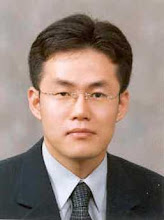GDP expands 0.8% in Q2 (Preliminary)
South Korea’s real GDP increased 0.8 percent in the second quarter of 2008 compared withthe previous quarter. It is the same pace as the advance estimates released on July 25. Froma year earlier, it expanded by 4.8 percent in the April-June period. On the production side, the manufacturing sector grew 2.2 percent from the previousquarter driven by robust performance in IT manufacturing. The construction sector, however,decreased 2.4 percent quarter-on-quarter. On the expenditure side, facility investmentclimbed 0.9 percent, led by increased investments in machinery, while private consumptiondeclined 0.2 percent due to sluggish consumption of durable goods and semi-durablegoods.
FDI outflow jumps 42.8% in the first half of 2008
South Korea’s overseas direct investment (notification basis) during the first half of 2008 roseby 42.8 percent year-on-year to US$14.72 billion, driven by large conglomerates’ rush todevelop resources and new markets. Investments by large companies increased significantly,up 72.9 percent during the first six months of this year, while those by SMEs and individualsgrew 17.4 percent and 4.2 percent, respectively.FDI outflows were concentrated in wholesale & retail sales and mining sectors which increasedoverseas direct investments by 130.1 percent and 106.8 percent, respectively. By country, FDIoutflows to Cambodia and the US were considerably up. Investments in the US rose 102.7percent mainly as Samsung C&T Corporation and the Korea National Oil Corporation have setout to invest in the development of off-shore oil fields in the Gulf of Mexico. In Cambodia, GSEngineering & Construction established a corporation to develop a business area in PhnomPenh, which helped push up overseas investments in the country by 127.8 percent
South Korea to advance listing and delisting rules
Rules governing initial public offerings (IPO) would be revised to boost stock market activityand credibility, said the Financial Services Commission (FSC) on August 19. Late last year,the government simplified listing procedures by eliminating barriers against foreign listingsand tightening delisting rules for loss-making companies.(US$ billion, notification basis)* Figures in parenthesis refer to percentage change from the same period in the previous year.Annual Annual Jan-Jun Jan-JunFDI outflow18.53 27.48 10.31 14.72(102.1) (48.3) (43.6) (42.8)Notified cases10,071 11,619 5,671 5,721(15.3) (15.4) (19.8) (0.9)2006 2007 2008Economic Bulletin 47Companies with a market capitalization of 20 billion won or more would be allowed to list onthe main bourse, KOSPI, even without meeting the minimum equity requirement of 10 billionwon, according to the FSC. The change will provide more companies with opportunities tolist on the market. To qualify for listing on the KOSDAQ market, companies would need atleast a market capitalization of 9 billion won or equity capital of 3 billion won. The regulatorwill also reinforce delisting regulations in order to evict listed companies that habituallyviolate disclosure rules, in an effort to improve transparency of the stock market.The government plans to amend the regulations by the end of September, reflectingopinions collected from public hearings on the new system.
South Korea, China to strengthen partnership
President Lee Myung-bak and his Chinese counterpart Hu Jintao vowed to significantlydeepen political, economic, cultural and personal exchanges of the two countries, and to setup strategic talks between senior diplomats, during their summit talks held in Seoul onAugust 25. The agreement came as part of efforts to strengthen their partnership on theinternational stage.Lee and Hu focused significantly on boosting bilateral economic and commercialcooperation agreeing to make efforts to realize the goal of increasing the annual volume oftwo-way trade to US$200 billion by 2010, two years earlier than initially planned. The twoPresidents will consider launching a government-level review of a bilateral free tradeagreement on the basis of private-sector joint studies and research, while deepeningbilateral cooperation in the field of energy, communications, and financial services. The twoleaders also agreed to make joint efforts to persuade North Korea to abandon its nuclearweapons programs within the framework of the six-party negotiations.Lee and Hu have already met twice after the Korean president took office in February. Duringtheir first summit in Beijing in late May, Lee and Hu agreed to upgrade Seoul-Beijingrelations from a “comprehensive cooperative partnership” to a “strategic cooperativepartnership.” The two leaders met again on August 9 in Beijing, after Lee attended theopening ceremony of the 29th Summer Olympics there.
‘Low-carbon, green-growth’ bill to be introduced
The South Korean government will lay the legal framework for efficient implementation ofpolicies on greenhouse gas reduction and climate change, as it issued a preliminary noticeon the legislation of related basic laws on August 29. The enactment will lay the foundationfor realizing a vision of “low carbon and green growth” that President Lee Myung-bak48 September 2008provided for Korea’s long-term economic development in his congratulatory speech on the60th anniversary of the founding of the nation.The legislation includes the formulation of a comprehensive plan on climate change, theintroduction of a greenhouse gas transaction system and a greenhouse gas statisticssystem, and the obligation of greenhouse gas emitting industries to report on emissions ofsuch gases to the government. The bill is subject to a public hearing, a review by thegovernment deregulation committee, a joint session of the government and the ruling party,and the Ministry of Government Legislation, as well as an approval by the NationalAssembly. It will come into effect three months after it is promulgated
South Korea ranked third in coping with globalization
South Korea was ranked third in overall adaptation to the globalized world among the OECDmember countries according to the annual “Global Benchmark Report 2008” published by theConfederation of Danish Industry. In the report, the confederation evaluated the OECDmember states on 84 measurable indicators in six main categories: growth and development;knowledge and competences; business flexibility; enterprise and entrepreneurship; costs andtaxation; and internationalization and openness.The country was ranked highest in the “Knowledge and Competences” category, based on ahigh share of youth completing secondary school, a large share of students in science andengineering, and a high patent productivity. Korea achieved leading positions in the field of“Growth and Development” and “Costs and taxation” as well.

No comments:
Post a Comment